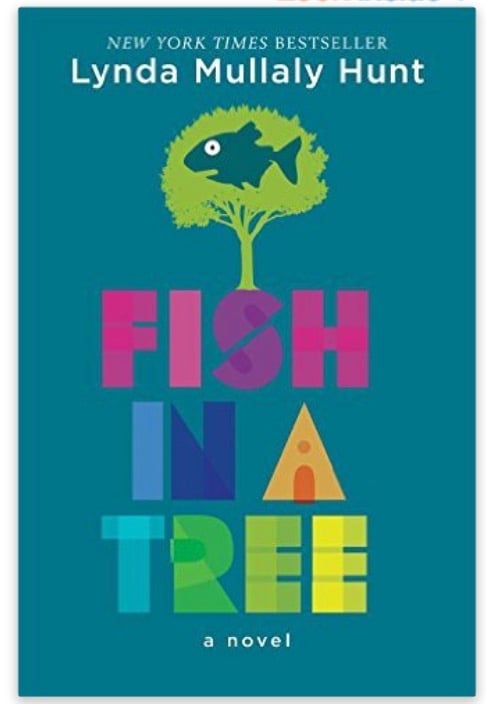When families come together to discuss test scores, no group of scores surprises them as much as “Processing Speed.” Processing Speed scores on psychometric exams might mean Coding and Symbol Search scores on the WISC intelligence exams or Visual Matching and Paired Cancellation on the Woodcock Johnson. Processing Speed scores on these subtests are typically lower for dyslexic students, but on other tasks like Decision Making and in real life, these students may be quite quick and even quicker than their peers at various tasks such as insight-based problem solving or situational awareness (helpful for athletics, for instance). Understanding the true significance of Processing Speed Difference in Dyslexia, then is important not only for recognizing when accommodations may be appropriate school, but also for identifying […]
Reading Fluency: What is Timed Guided Repeated Reading and Why Should Students Do It? [Premium]
In a recent report in the Journal of Learning Disabilities, Lee and Yoon reported that repeated reading had significant beneficial effects on the reading fluency of students with a reading disability. Listening to the passage first increased the benefit. Excerpt: “Reading the passage at least four times increased reading fluency more than two to three times…repetition is a critical variable, and automaticity was based on retrieval (memory) rather than adjustment of reading procedures (e.g. word decoding strategies… The listening passage preview with the proper prosody that was modeled by the teachers may have enhanced understanding of text and reduced the moderator of negative emotion (e.g. confusion, anxiety, frustration) presumed or students with RD (e.g. “with listening passage preview there is less anxiety.” N.B. Fluency practice […]
Top Back to School Apps for Dyslexia [Premium]
EARLY READERS Endless Reader by Originator – Free to try; $5.99-11.99 bundles. iPhone and iPad Great for visual learners. Animations and characters help with sight word learning. Orton Gillingham Card Deck by Mayerson Academy FREE. iPhone and iPad Multisensory card deck with consonants, single vowels, consonant digraphs, vowel teams, vowel + r, short vowel signals, VCe, and common suffixes. Auditory drill. Record and playback to hear pronunciations. Video see and hear sounds. Great phonics practice. Sight Words by Little Speller – FREE Iphone and Ipad All 220 sight words, no-frills program that allows you to create your own sight word lists – lower case or upper case letters. Can allow hints. Sight Words Reading and Spelling by Edoki $3.49 Android. Includes 320 sight words (Fryes + Dolce). […]
Children’s Books Featuring Positive Characters with Dyslexia
CLOSE TO FAMOUS Newbery Honor winner. When twelve-year-old Foster and her mother land in the tiny town of Culpepper, they don't know what to expect. But folks quickly warm to the woman with the great voice and the girl who can bake like nobody's business. Soon Foster...
Dyslexia Journal Club – Spelling Strategies – What Does Research Say? [Premium]
In a recent paper from Montreal, research tested dyslexic students ages 9-11 to see which spelling strategies were more effective. The most common strategy children use to spell is phonological, whether they are or aren’t dyslexic. The other common strategies children use for spelling are visuol-orthographic, analogy, and backup. The phonological strategy used phoneme-grapheme correspondence. Analogy was based on the use of known words to spell that share orthographic similarities . Visuo-orthographic strategy involved visual and specific properties of words. A backup strategy was defined as using a personal mnemonic device for one specific word. In this research study, students were tested in tests that included spelling to dictation, and written narrative (summary) after being read a story. Spelling words were classified on the basis […]
Best Early Dyslexia Screeners for Schools – Elementary [Premium]
With new legislation moving schools toward early identification of students with dyslexia, teachers, classrooms, and districts are having to decide on which screener would be best for identifying students “at-risk.” For dyslexic students, presence of a reading gap has been detected as early as the first grade and early intervention is well-recognized to be beneficial. Universal screening in schools is a great idea – parents, teachers, and students should just be aware of the limits that a brief screening tool can have. Most early screeners will not include cognitive or intelligence tests (e.g. working memory, reasoning, ‘giftedness’) nor will they assess non-reading academic tasks such as math, writing, or spelling. They are a start, however, and will definitely be valuable for helping kids get the […]
New Research: Dyslexia Gene and Auditory Processing [Premium]
New research from the University of Texas – Dallas, connects dyslexia with impaired auditory processing. Dr. Michael Kilgard: “We now have evidence that strongly suggests that people with dyslexia don’t actually hear all of the sounds they need to hear,” said Kilgard, who is the Margaret Fonde Jonsson Professor in the School of Behavioral and Brain Sciences and the associate director of the Texas Biomedical Device Center. “If you have trouble hearing the sounds in your language, you will have trouble learning to read later,” he said. “Armed with this information about a genetic link, we may be able to determine who is at risk for reading problems before they have trouble — before they even start learning to read.” For those who try to keep up with […]
Dyslexia in the General Classroom – YOU DECIDE : 2nd Grader and Reading [Premium]
YOU are a 2nd-grade teacher in a busy public school classroom. You just learned that Teddy, a student in your class has been tested and found to be dyslexic. Teddy already gets pull-out instruction with multisensory learning to help him read. What can you do to help Teddy make more progress in reading? ************ 1. Alliteration, Rhyming, and Singing – All students can benefit by alliteration and rhyming. New readers will find the books easier to read and reinforcing in terms of the patterns of sounds and printed word families, but good readers can also use alliteration and rhyming as a prompt for poetry and humorous writing. Here is a nice graphic organizer for alliteration: (click here for more). This teacher created alliteration spinners to […]
Latest Research: Advances in our Understanding of Dyslexia, ADHD, and Giftedness [Premium]
It’s long been known that Dyslexia and ADD / ADHD have high rates of overlaps or “co-morbidities”. Dyslexia and ADHD co-occur 30-50% of the time (Germano, 2010) and only 40% of children with dyslexia and 20% of children with ADD/ADHD have it in isolation (Wilcutt and Pennington, 2000). Science has progressed on many fronts over the past 5 years, and both attention and dyslexia are now known to be much more complex than originally suspected. It has long been known that dyslexia is associated with attention and working memory differences, and that reading, writing, and spelling difficulties are higher among children identified as having ADHD. Both Dyslexia and ADD / ADHD are associated with slower processing speeds and both seem to be connected with the […]
What Works for Dyslexia? RTI and Tier 3 Intensive Reading Intervention [Premium]
Response to Intervention or RTI has been adopted by 1/3 of US states, although the details of its use and requirements varies considerably in terms of how it addresses the needs of dyslexic students. At its best RTI is a multi-tiered approach to the identification and support of students with different learning and behavior needs. At its best RTI provides high quality, scientifically-based classroom instruction, ongoing student assessment, and tiering of instruction to students who require differentiation or individualization. At it’s worse, RTI has been criticized as a “wait to fail” program where student neither get adequately assessed nor provide with appropriate instruction. Wrightslaw’s article The RTI Hurdle begins with “The road to Hell is paved with good intentions.” Certainly vigilance and advocacy on the part of […]
This is Your Brain on Phonics – fMRI and Dyslexia [Premium Subscription]
One of the greatest neuromyths about dyslexia is that it’s just about reading. Kudos to the Gabrieli lab (and many others) who are unraveling the differences that exist between dyslexic and non-dyslexic children because the science can inform us about what we may need to do as teachers and tutors. In the following article, we’ll share recent brain research that shows that dyslexic children ‘hear’ or processing sounds differently. Instead of activating a left hemispheric area, they activate the right temporoparietal cortex, a part of the brain important for multisensory integration and imitation. ** To read more, log into your Premium account or become a Premium Subscriber here or. Thank you for your support!
How Harry Potter Taught Me to Read and Now I’m a Writer
“When I was 12 my older sister had recently discovered Harry Potter by J. K. Rowling. She started to read it to me once a day, however, the story was so gripping that once a day was just not enough for me. The exciting and alluring nature of Rowling’s writing drove me to pick up a book for the first time. I was amazed at how she was able to incorporate such complex themes and ideas into her books, but still write in a style that I could understand. It was challenging at first. I blundered my way through the pages, stumbling over words, often not understanding the meaning. But I was so desperate to find out what happened next that I forced myself to get […]

![Understanding Processing Speed and Dyslexia [Premium]](https://www.dyslexicadvantage.org/wp-content/uploads/2016/08/shutterstock_111687563.jpg)
![Reading Fluency: What is Timed Guided Repeated Reading and Why Should Students Do It? [Premium]](https://www.dyslexicadvantage.org/wp-content/uploads/2016/08/shutterstock_105363872.jpg)
![Top Back to School Apps for Dyslexia [Premium]](https://www.dyslexicadvantage.org/wp-content/uploads/2016/08/apps-dyslexia-our-shutterstock.jpg)

![Dyslexia Journal Club – Spelling Strategies – What Does Research Say? [Premium]](https://www.dyslexicadvantage.org/wp-content/uploads/2016/07/shutterstock_357545264.jpg)
![Best Early Dyslexia Screeners for Schools – Elementary [Premium]](https://www.dyslexicadvantage.org/wp-content/uploads/2016/07/Screen-Shot-2019-09-15-at-4.30.16-PM.jpg)
![New Research: Dyslexia Gene and Auditory Processing [Premium]](https://www.dyslexicadvantage.org/wp-content/uploads/2016/07/Screen-Shot-2016-07-09-at-3.44.01-PM.jpg)
![Dyslexia in the General Classroom – YOU DECIDE : 2nd Grader and Reading [Premium]](https://www.dyslexicadvantage.org/wp-content/uploads/2016/05/2nd-grade-our-shutterstock.jpg)
![Latest Research: Advances in our Understanding of Dyslexia, ADHD, and Giftedness [Premium]](https://www.dyslexicadvantage.org/wp-content/uploads/2016/04/brain-pixabay.jpg)
![What Works for Dyslexia? RTI and Tier 3 Intensive Reading Intervention [Premium]](https://www.dyslexicadvantage.org/wp-content/uploads/2016/03/Screen-Shot-2019-09-21-at-10.21.54-AM.jpg)
![This is Your Brain on Phonics – fMRI and Dyslexia [Premium Subscription]](https://www.dyslexicadvantage.org/wp-content/uploads/2016/01/shutterstock_229039786.jpg)














